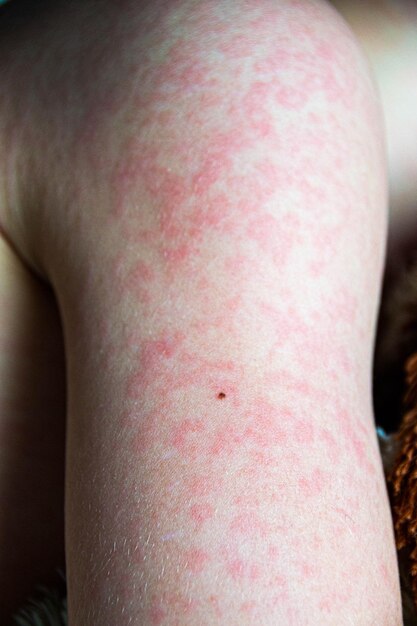Measles, a highly contagious viral infection, is characterized by a distinctive rash and flu-like symptoms. While measles vaccination has significantly reduced the incidence of this disease, outbreaks still occur, especially in areas with low vaccination rates. Recognizing the signs of measles is crucial for early diagnosis, prompt treatment, and preventing the spread of the virus. In this article, we’ll explore the signs and symptoms of measles, methods of diagnosis, and strategies for prevention.
What is Measles?
Measles, also known as rubeola, is caused by the measles virus (MeV) and primarily affects children, although it can occur in people of any age who are not immune. The virus spreads through respiratory droplets and is highly contagious, making it easy to transmit from person to person.
Signs and Symptoms:
- Fever: Measles typically begins with a high fever, often exceeding 101°F (38.3°C). The fever may persist for several days and is usually accompanied by other symptoms.
- Cough: A persistent cough is a common symptom of measles and may worsen as the illness progresses.
- Runny Nose: Measles can cause a runny or congested nose, similar to the symptoms of a cold or flu.
- Sore Throat: Measles may cause a sore throat, which can range from mild discomfort to severe pain, especially when swallowing.
- Conjunctivitis: Also known as pink eye, conjunctivitis is a common symptom of measles, characterized by redness, swelling, and discharge from the eyes.
- Koplik’s Spots: These small white spots with a bluish-white center may appear inside the mouth on the inner lining of the cheeks. They are considered a classic sign of measles but may not always be present.
- Rash: The measles rash typically appears 3 to 5 days after the onset of symptoms. It begins as flat red spots on the face and neck and gradually spreads to the trunk, arms, and legs. The rash may be accompanied by itching and can last for several days.
Diagnosis:
Diagnosing measles is usually based on clinical symptoms and history of exposure to the virus. Laboratory tests, such as blood tests or throat swabs, may be performed to confirm the diagnosis and rule out other possible causes of the symptoms.
Complications:
Measles can lead to serious complications, especially in young children, pregnant women, and people with weakened immune systems. Complications of measles may include pneumonia, encephalitis (swelling of the brain), ear infections, and in rare cases, death.
Prevention:
The most effective way to prevent measles is through vaccination. The measles, mumps, and rubella (MMR) vaccine is safe and highly effective in preventing measles infection. It is recommended that children receive two doses of the MMR vaccine, with the first dose given at 12-15 months of age and the second dose at 4-6 years of age.
Measles is a highly contagious viral infection that can cause serious illness and complications, especially in unvaccinated individuals. Recognizing the signs and symptoms of measles is essential for early diagnosis, prompt treatment, and preventing the spread of the virus. Vaccination remains the best way to protect against measles and reduce the risk of outbreaks in communities. By staying informed and taking appropriate preventive measures, we can work together to control and eliminate measles as a public health threat.










